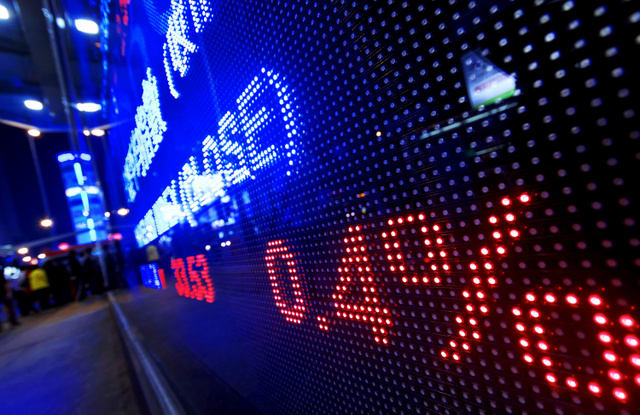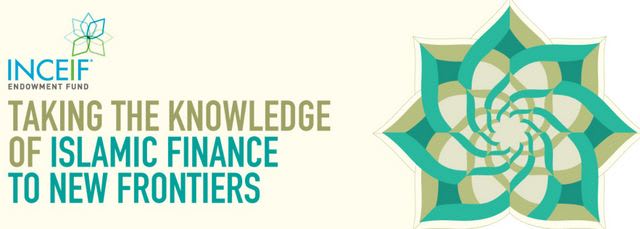Issues in Islamic Finance: Financial Crises caused by Lack of Risk Sharing
The financial crisis of 2008 seems almost inevitable in hindsight. Economists, politicians, and scholars are still arguing about the exact hows and whys, but there's one sector of the financial world that is confident it knows how to avoid future meltdowns. Islamic Finance makes up just 1% of the world's financial assets, but it's a growing sector with a lot of intriguing insight into risk sharing and ethical economics. Let's take a closer look at Islamic Finance and risk sharing to see why it's a promising and relevant area of study for the modern economics student.
- Education


You should be aware by now that 2008 was marked by a banking crisis that had a major impact on the world's economy. Although the subprime mortgage crisis originated in the US, its effects triggered a global recession and economies around the world are still recovering. In the years following the crash, there has been a lot of speculation and finger-pointing regarding who and what was responsible, and how the world's financial institutions and governments can avoid future crises of a similar nature.
While the origins of the crash are still hotly debated, one issue has made a significant impact on the financial world – by and large, the real casualties of the crisis were not banks or financial moguls, but average people who lost their homes, their jobs, and their savings. But it's not all gloom and doom. One positive result of the 2008 crash has been a shift in the economic and business sectors towards a more ethical code of practice. While momentum for ethical financial operations comes largely from customers, there are areas of the economic world that are poised to provide the sound, ethical, and forward-thinking financial services, and for those already working in Islamic Finance the answer to solving and preventing the world's economic woes seems obvious – risk sharing.
What is risk sharing?

Risk sharing, or risk distribution, is a type of economic investment model in which the risk of investment is divided equitably among all members of an investment group. Risk sharing is often used within Islamic Finance because sharia law prohibits charging interest or fees on money loaned in good faith. According to the Financial Times, “the Islamic financial model works on the basis of risk sharing. The customer and the bank share the risk of any investment on agreed terms, and divide any profits between them.” Since the subprime mortgage crisis, this model has become increasingly attractive because it is not subject to fluctuating interest rates. For instance, there is some evidence that a risk-sharing model could have lessened or completely alleviated the financial crisis in Greece and allowed the country to use its economic growth to pay off its debt.
Why is risk sharing so important in Islamic Finance?

Risk sharing is the foundation of Islamic Finance because interest is forbidden under sharia law. While holding debt is not prohibited, charging interest is seen as an act of injustice. Therefore, the risk-sharing model serves as a means of financing investments in the world of Islamic Finance and sharia-compliant business.
What is the potential of risk sharing in today's economy?
Proponents of risk sharing, both in Islamic Finance and traditional Western Finance, see the model as a more stable, responsible means of financing investments. And because Islamic Finance eschews conventional interest models, the sector has turned to innovation and diversification making it fast-growing and forward-thinking. In fact, the according to The Economist, Islamic Finance is expected to grow at a rate of nearly 20% per year. With risk sharing at the heart of Islamic Finance, the potential for the investment model is huge and savvy economics students who want to be on the front lines of growth, prosperity, and ethical investment are queuing up to study Islamic Finance.
So where can you study risk sharing and Islamic Finance?

If you see the potential in risk sharing and believe that a career in ethical financing is in your future, look no further than INCEIF – the Global University of Islamic Finance. INCEIF boats some of the best economic minds and Islamic Finance scholars and the University collaborates with some of the biggest financial institutions around the world. INCEIF is focused on producing talented, innovative financial thinkers with the skills to function in the modern corporate world while upholding the moral and ethical principles of Islamic Finance.
INCEIF recognizes that the future of the world's economy lies in globalization, technology, and sophisticated investment, and strives to prepare its students for futures in both the financial and regulatory aspects of economics. INCEIF offers a range of programs and degrees aimed at ambitious students. Students can complete a Masters in Islamic Finance Practice or an MSc in Islamic Finance, both of which provide students with in-depth knowledge of the Islamic and conventional financial sectors. INCEIF also awards doctoral degrees that give students a wealth of career opportunities.

INCEIF is based in Kuala Lumpur, Malaysia, but the school and campus promote a diverse and global community. Students come from around the world and represent a variety of cultural, religious, and educational backgrounds. The institution has partnered with financial institutions around the world and students at INCEIF have the chance to explore international opportunities. The INCEIF opened its doors almost a decade ago, and already its students and alumni are making an impact on the economic world.


